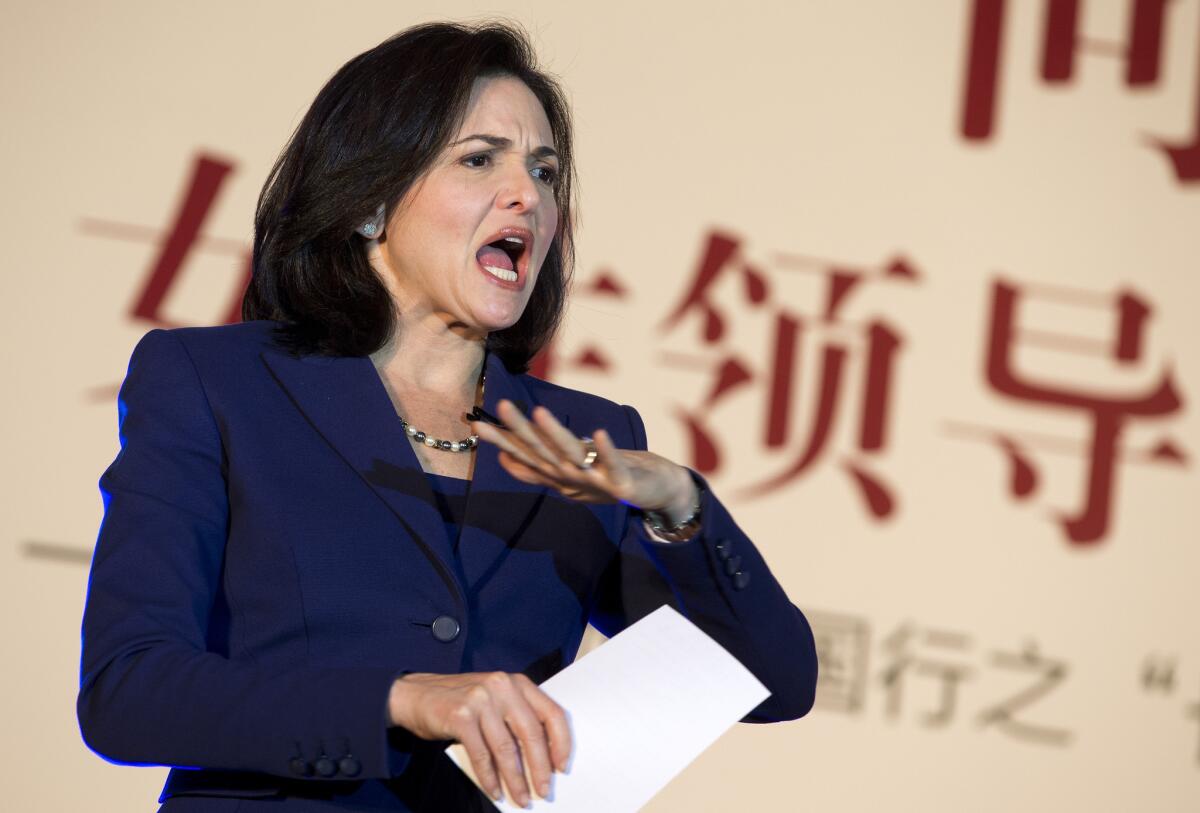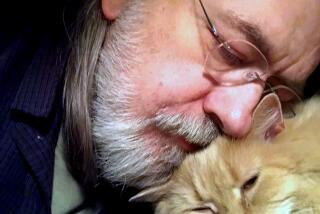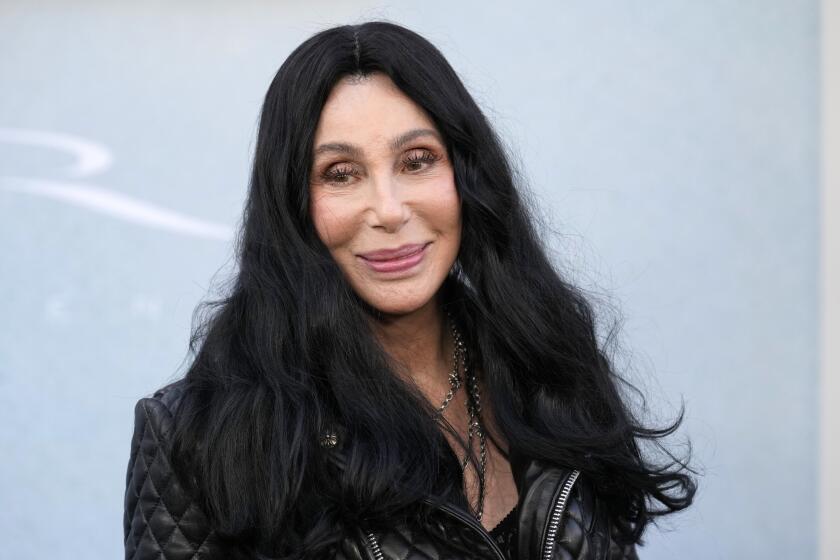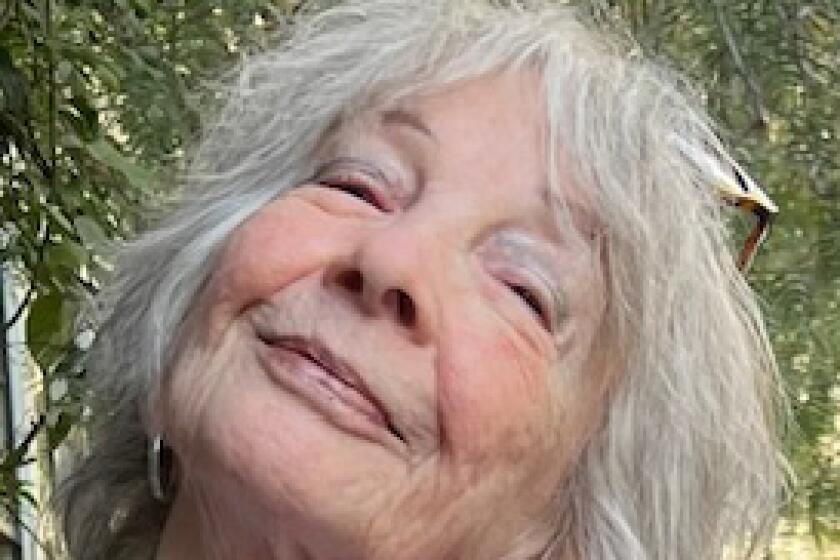Sheryl Sandberg’s wrongheaded campaign to ban the word ‘bossy’

Sheryl Sandberg was born bossy.
As a child she commanded her younger brother and sister to follow her around, listen to her monologues, then scream “Right!” when she was finished. For the neighborhood children, she created shows that she could direct and founded clubs that she could run.
So maybe she was a little insufferable. But the girl got things done.
At her wedding, her brother and sister toasted her this way: “Some of you think we are Sheryl’s younger siblings, but really we were Sheryl’s first employees.”
Today of course, Sandberg is an extraordinarily successful businesswoman with soaring self-esteem. A former top executive at Google, she is now chief operating officer of Facebook. She is a darling of the women’s empowerment circuit, and the bestselling author of the self-help book “Lean In: Women, Work and the Will to Lead.”
Those anecdotes about her childhood come from the book. “To this day,” she writes, “I always feel slightly ashamed of my behavior.”
But not, apparently, too ashamed. Because these days Sandberg is trying to ban the word “bossy,” a pretty damn bossy move.
She has teamed up with Girl Scouts of the USA Chief Executive Anna Maria Chavez for “Ban Bossy,” a campaign to annihilate a perfectly good word in the quest to change the culture, which they claim undermines girls who exhibit leadership skills by labeling them with pejoratives like “bossy.”
I’m down with the overall goal of helping girls — and boys, for that matter — find their voices and their confidence, but I’m dead set against word murder.
“Banning a word or a term is never persuasive,” said social psychologist Carol Tavris, who wrote “The Mismeasure of Woman: Why Women Are Not the Better Sex, the Inferior Sex, or the Opposite Sex.” “It either makes the term go underground by the people who want to use it and love it and think it’s the right word, or it makes the people who have been using it resentful, or they dismiss you as foolish.”
Without question, we live in a world where women are held to a different standard than men.
Two weeks ago at Tina Brown’s Women in the World conference in New York, Hillary Rodham Clinton talked about the persistent double standard that she faces, and how people even ascribe moods to her based on her hairstyle.
“There is a deep set of cultural psychological views that are manifest through this double standard,” she said. “That’s why it’s important that we surface them, and why we talk about them, and help men and women recognize when they are crossing over from an individual judgment — which we’re all prone to make and have a right to make about somebody, man or woman — into a stereotype.”
A mere three days later, former CIA and NSA director Michael Hayden dismissed Sen. Dianne Feinstein (D-Calif.) as “emotional” because she has relentlessly pursued the release of a Senate report outlining the CIA’s use of torture, which the CIA would rather keep under wraps.
The good news? Hayden was blasted for the insult. “Hell hath no fury like a male-dominated agency scorned,” wrote Susan Milligan of U.S. News and World Report.
And yet, despite numerous examples of how language is used to patronize women, I am a fan of “bossy.”
In two perfect syllables, it conveys the seizing of authority in low-stakes situations. (Lucy in “Peanuts” is bossy; German Chancellor Angela Merkel is not).
Its connotation is negative, but not too negative, yet it’s also amusing. That, I assume, is why Tina Fey’s christened her bestselling memoir “Bossypants.”
Calling someone “bossy” is barely an insult. It is not the same as calling someone a fascist or a dictator, or even a control freak.
“When a little boy asserts himself, he’s called a ‘leader,’ ” claim Sandberg and her Girl Scout collaborators. “Yet when a little girl does the same, she risks being branded ‘bossy.’ Words like bossy send a message: don’t raise your hand or speak up. By middle school, girls are less interested in leading than boys — a trend that continues into adulthood.”
I don’t buy it. I don’t think it hurts to be called “bossy,” and Sandburg’s career is living proof.
“Girls’ self-esteem and girls’ ambition are doing just fine,” Tavris said. “That’s the bottom line here. The old stereotype that only girls’ self-esteem plummets when they are teenagers is wrong. Everybody’s self esteem plummets when they are a teenager. This is an issue that feels so dated to me.”
Cathy Young, who writes about feminism and gender politics from a libertarian perspective, unpacked the social science behind the “Ban Bossy” campaign, and found most of it lacking.
For instance, she demolishes this assertion from the Ban Bossy website that “The confidence gap starts early. Between elementary and high school, girls’ self–esteem drops 3.5 times more than boys.”
As Young writes:
The source for this is a 1991 study from the American Association of University Women, “Shortchanging Girls, Shortchanging America,” that amounts to 23-year-old junk science. Writing on the Psychology Today website in 2010, the late Susan Noelen-Hoeksma, a leading psychologist and a Yale University professor, noted that “the study by the American Association of University Women was refuted by subsequent studies using large samples and better measures of self-esteem.” After reviewing the claims of a crisis in girls’ self-esteem and the relevant research, Noelen-Hoeksma concluded, “The phrase ‘much ado about nothing’ comes to mind.”
Last week at the Los Angeles Times Book Festival I moderated a panel about the evolution of feminism that included Myra MacPherson, whose new book “The Scarlet Sisters” is a biography of the extraordinary proto-feminist Victoria Woodhull and her sister, Tennessee Claflin. The sisters were the first female stockbrokers in America, newspaper publishers and crusaders for free love. You won’t believe what they were called along the way. (In 1872, incidentally, Woodhull was the first American female presidential candidate. Her running mate was Frederick Douglass.)
When I asked the panel’s authors what they thought of banning the word “bossy,” MacPherson didn’t hesitate for a second before singing out: “How about ‘ballsy’ instead?”
Why not both?
More to Read
Sign up for our Book Club newsletter
Get the latest news, events and more from the Los Angeles Times Book Club, and help us get L.A. reading and talking.
You may occasionally receive promotional content from the Los Angeles Times.







